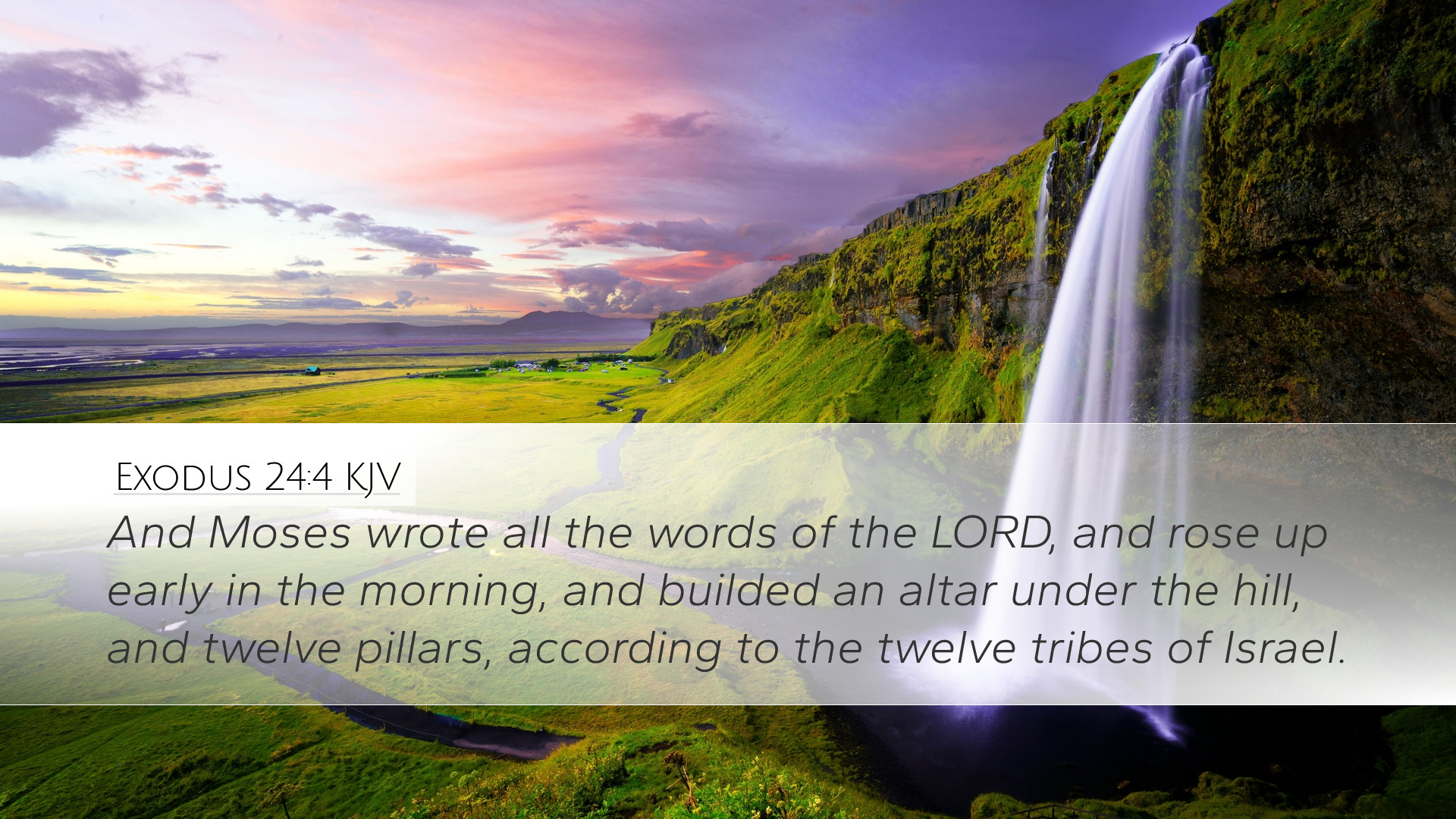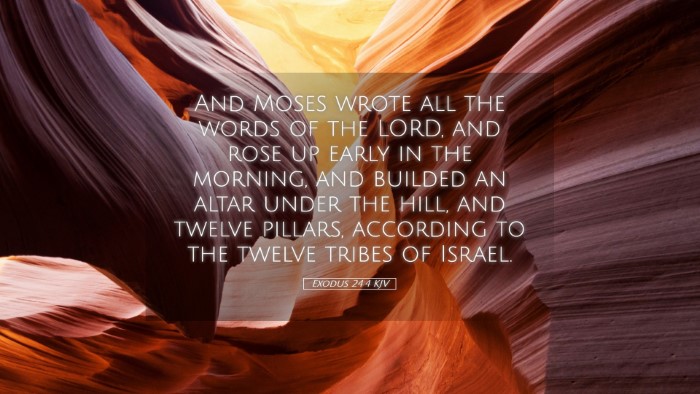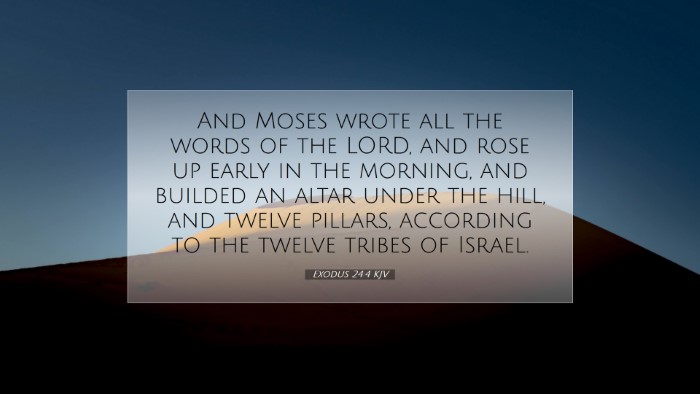Exodus 24:4 - Commentary and Insights
Verse Text: "And Moses wrote all the words of the LORD, and rose up early in the morning, and builded an altar under the hill, and twelve pillars, according to the twelve tribes of Israel."
Introduction
Exodus 24:4 marks a pivotal moment in Israel's covenantal relationship with God. This verse captures the crucial elements of divine revelation, human obedience, and communal identity. Various public domain commentaries offer rich insights into the theological and practical ramifications of Moses' actions as recorded in this verse.
Moses' Faithfulness in Recording God's Words
Matthew Henry emphasizes the significance of Moses writing "all the words of the LORD." This act reflects not only obedience but also a commitment to preserving divine revelation for future generations. The meticulous documentation of God’s commandments serves to legitimize Moses' leadership and ensures that the words of the covenant are accessible and authoritative.
Albert Barnes adds that the act of writing suggests a formal declaration of the covenant, indicative of the importance of these words in the life of the Israelites. It implies a communal affirmation of the laws that would dictate their relationship with God and one another. This emphasis on written record points to the necessity of maintaining an enduring text for instruction and guidance.
The Early Rising of Moses
The phrase "rose up early in the morning" indicates Moses' eagerness and commitment to fulfilling God's directives. Adam Clarke notes that early rising is often associated with spiritual preparedness and devotion. Moses’ actions serve as a model for leaders and believers, underscoring the importance of prioritizing one's communion with God and the diligence required in spiritual leadership.
The Building of an Altar
The construction of an altar under the hill symbolizes a sacred space dedicated to worship and sacrifice. As Barnes explains, altars in ancient Israel served as places of encounter with God, where individuals could express gratitude, seek forgiveness, and affirm the covenant. This reflects the theology of worship that underscores the necessity of physical expressions of faith.
The Twelve Pillars Representing the Tribes
The establishment of "twelve pillars, according to the twelve tribes of Israel" signifies the collective identity of the nation. Matthew Henry highlights that these pillars serve not only as a reminder of God's covenant with Israel but also as a testament to their unity under divine governance. Each pillar represents a tribe, reinforcing the idea that worship and covenant faithfulness are community affairs, not merely individual pursuits.
Theological Themes
- Covenant: The act of writing and the construction of the altar underscore the establishment of the covenant, a recurring biblical theme where God promises to be with His people in a particular, committed relationship.
- Leadership: Moses' example as a leader who communicates God's will underscores the concept of prophetic leadership in Israel. He demonstrates the necessity of accountability and transparency in guiding the people.
- Spiritual Preparedness: Moses' early morning rise exemplifies the discipline required for effective leadership in faith. It reflects the overall biblical call for diligence in the pursuit of spirituality.
- Community Identity: The twelve tribes' representation emphasizes the importance of community in worship and obedience to God, echoing the implications for modern congregational life.
Practical Applications for Pastors and Theologians
Pastors and theologians can draw significant lessons from Exodus 24:4. First, the importance of Scripture in guiding community life is paramount. As Moses wrote down God’s words, contemporary leaders are called to uphold Scripture through teaching, preaching, and application within their congregations.
The building of an altar can inspire pastors to create spaces of worship that invite the congregation into deeper communion with God. This can translate to physical spaces in churches or even metaphorical spaces created through prayer and fellowship.
Moreover, the representation of the twelve tribes speaks to the need for inclusivity and unity within the church community. Leaders should strive to foster an environment where all members feel valued and represented, reflecting the diversity of God’s creation.
Conclusion
Exodus 24:4 serves as a profound reminder of God’s covenant with His people, emphasizing the roles of divine revelation, responsible leadership, communal worship, and identity. The insights derived from historical commentaries challenge contemporary readers to consider their engagement with Scripture, their roles within communities of faith, and their commitment to living out God’s commands in all aspects of life. As with Moses, may we strive to write God’s words on our hearts and in our communities, rising early to prepare ourselves for the sacred tasks before us.


